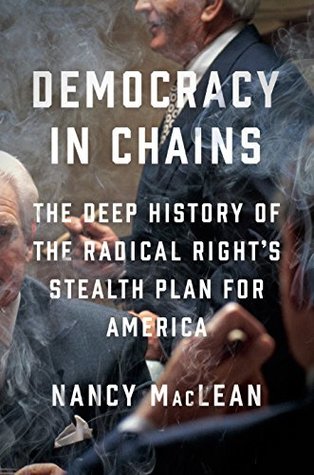But perhaps above all, for Buchanan, the end justified the means: Chile emerged with a set of rules closer to his ideal than any in existence, built to repel future popular pressure for change. It was “a virtually unamendable charter,” in that no constitutional amendment could be added without endorsement by supermajorities in two successive sessions of the National Congress, a body radically skewed by the overrepresentation of the wealthy, the military, and the less popular political parties associated with them.
Welcome back. Just a moment while we sign you in to your Goodreads account.


